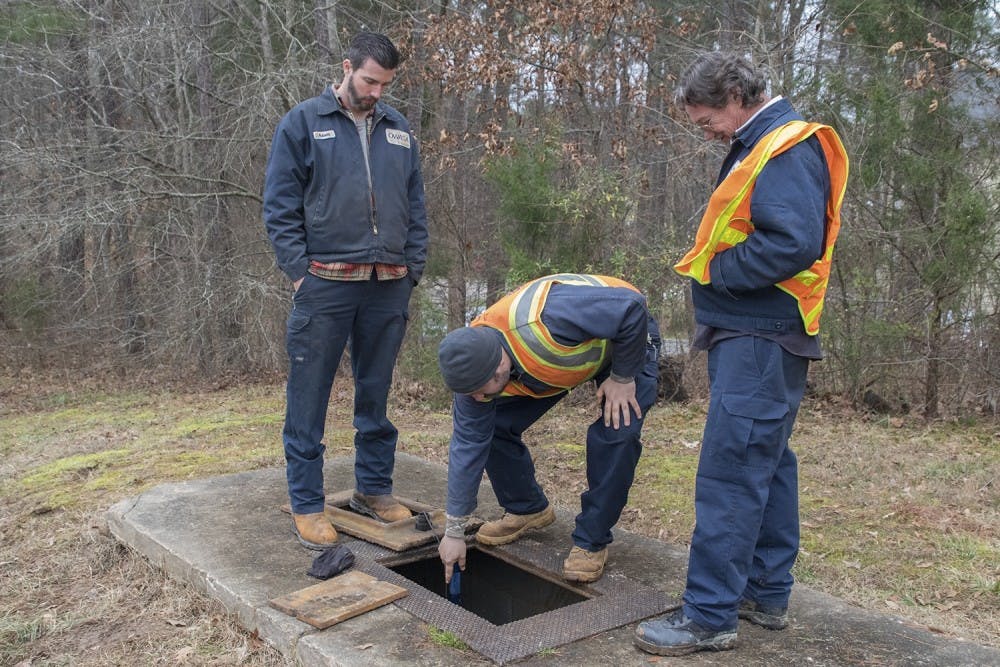Community partnerships seemed to be the highlight of the Orange Water and Sewer Authority's annual update to the Board of Orange County Commissioners at a Feb. 19 meeting.
The main speaker, OWASA secretary Raymond DuBose, presented OWASA's improvement plans for the upcoming year. One change is the implementation of quarterly check-in meetings between the members of the BOCC and the appointees of the OWASA board. DuBose said this was designed to create greater communication between OWASA and the community it serves.
OWASA's main system improvement for the upcoming year is a new water main assessment and prioritization model. OWASA did not directly address the large-scale water emergency that happened in Chapel Hill in 2017, nor the water main break that happened in November of 2018, but the new assessment system was originally suggested in the wake of the November event.
Each year, OWASA invests about $20 million in capital improvement projects — upgrading pipes, pumps, equipment and more — to increase system resiliency. Nearly 50 percent of customer payments fund these projects, according to Linda Low, OWASA’s communications and community relations officer. These projects would fall under the system improvement plan.
OWASA also announced at the meeting that the sewer construction in the historic Rogers Road area is now expected to be complete by the end of April 2019. Construction began in September 2017, but OWASA encountered a lot of dense rock that affected the timeline of construction, according to DuBose.
DuBose also discussed OWASA’s new strategies for addressing affordability by partnering with community organizations. In the last year, OWASA has worked with the Orange County Family Success Alliance to share conservation outreach materials translated into Spanish, Burmese and Karen.
Mary Tiger, OWASA’s sustainability manager, is now attending the Orange County Local Government Affordable Housing Collaborative's meetings to learn about its initiatives and how OWASA can help.
OWASA is progressing with its Care to Share program, where customers can contribute to the payments of other OWASA customers in need. Donors to this program have the opportunity to make fixed monthly donations or round up their water and sewer bills. In 2018, the program's contributions totaled $7,650.
Agua Vista is an initiative to upgrade OWASA’s water meters to simplify customers' ability to monitor their own water use. OWASA's hope is that this will allow easier leak detection and even decrease greenhouse gas emissions by cutting down vehicle miles and related costs.




